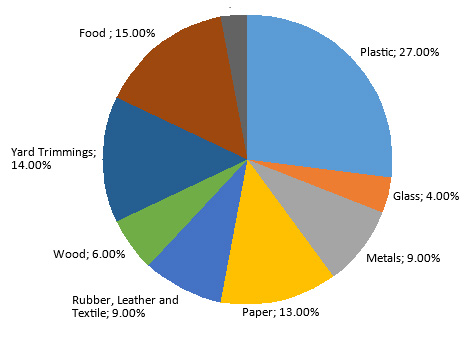AGF aims to utilize Municipal Solid Waste to make Fuel Briquette. We are focusing to do treatment of solid municipal waste day to day basis and convert into high calorific value solid fuel.
Municipal Solid Waste (MSW) - more commonly known as trash or garbage - consists of everyday items we use and then throw away, such as product packaging, grass clippings, furniture, clothing, bottles, food scraps, newspapers, appliances, paint, batteries, paper-wooden piece, broken glass, plastics, polymers, veg and non-veg etc. This comes from our homes, schools, hospitals and businesses.
Waste can be classified in several ways:
MSW is toxic. Every landfill will leak eventually. Burning produces toxic air pollution. Incinerators produce both ash that is deposited in landfills and ultra-fine particulate matter that enters the air after escaping pollution control technology. Incinerators emit toxins such as VOCs, heavy metals, dioxins, sulphur dioxide, carbon monoxide, mercury, carbon dioxide and furans into the air. Any contaminants captured by the air pollution control measures end up in the incinerator ash. That ash is then buried in landfills, which brings us back to the leaky liner problem above. All those contaminants are linked to cancer and more. Recycling programs would help, but access is limited.
Disposal of solid wastes is a stinging and widespread problem in both urban and rural areas in many developed and developing countries. MSW management solutions must be financially sustainable, technically feasible, socially, legally acceptable and environmentally friendly. Solid waste management issue is the biggest challenge to the authorities of both small and large cities.
The composition of MSW varies significantly from one municipality to another and from country to country. Such variation depends mainly on the life style, economic situation, waste management regulations and industrial structure. Based on the calorific value and the elemental composition of MSW the engineers and scientists can decide upon its utility as a fuel. Meanwhile, such information will help in predicting the makeup of gaseous emissions. Thereafter, this MSW is subjected to the energy conversion technologies including gasification, incineration etc. The composition of the waste will provide valuable information on the utility of the material for either composting or for biogas production as fuel via biological conversion.
Biodegradation of such MSW according to the time is an important factor that governs the amount of recyclable material particularly the organic contents. The composition and classification by material of such MSW is given in figure:

The plastics waste disposal is a major global environmental problem. Disposal of these plastic wastes in landfill is considered a non-sustainable from the environmental point of view. Moreover, landfill sites and their capacity are decreasing rapidly. On the other hand, legislation is stringent worldwide.
As plastics are essentially hydrocarbons, they possess a calorific values ranged between 30 and 40 mj/kg. Thus, they can be burned or incinerated in the municipal or other dedicated wastes with power and heat generation. They can also serve as an additional fuel to replace the fossil fuels in several production processes such as blast furnaces and cement kilns. A complete destruction of these plastics wastes can be achieved by such thermal applications. This application of burning plastic waste, thus, is replacing fossil fuels. However, this leads to additional advanced pollution control measures.
Several reports are published concerning the environmental impact of incineration and/or landfill practice. These studies emphasized that plastics and other non-biodegradable materials will persist in the landfill, whereas the biological solids (bio-solids) will be transformed anaerobically into landfill biogas, as energy resource. Therefore, the impact of incinerating the plastics and other non-biodegradable materials is hazardous due to the release of more greenhouse gases than landfill.